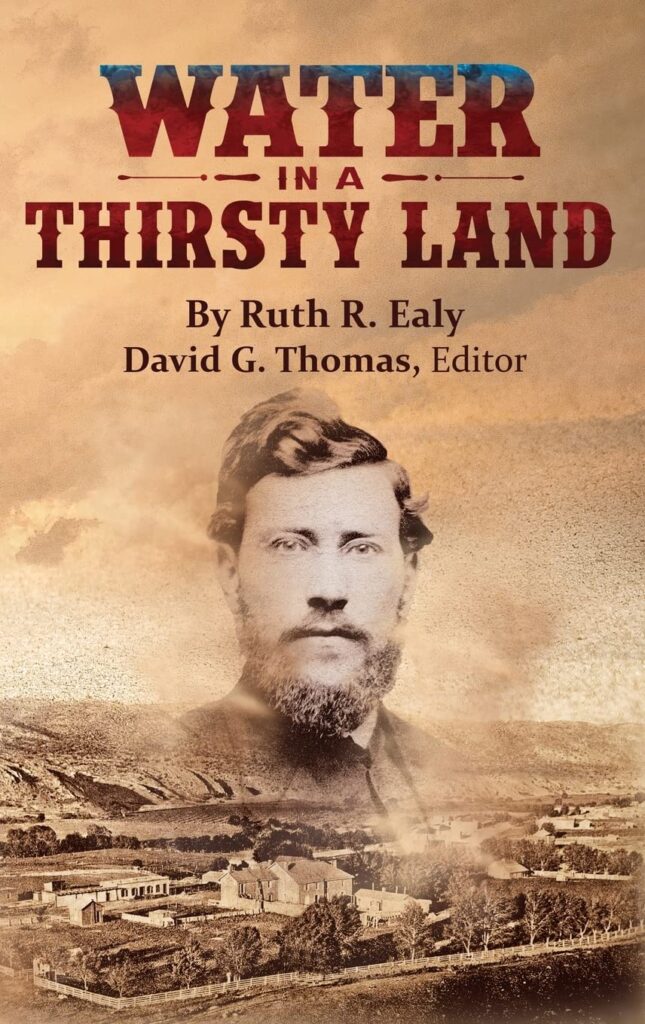The Rev. Dr. Taylor Filmore Ealy faced many struggles, most not of his own making, while a Presbyterian medical missionary between 1874 and 1881—first at Fort Arbuckle, on the Chickasaw Reservation in Oklahoma Territory; then in volatile Lincoln, New Mexico Territory; and finally at Zuni Pueblo, also in New Mexico Territory. Some of that time he kept a journal. Daughter Ruth drew on his journal entries, as well as the recollections and correspondence of her father and mother, Mary, to write Water in a Thirsty Land—first privately issued in 1955 in a limited edition of 40 copies.
Editor David Thomas resurrects the Ealy chronicle as Vol. 10 of Doc45’s Mesilla Valley History series. In his excellent introduction Thomas provides not only overviews of the three Western locales where the Ealys lived, but also brief biographies of the major figures in Ruth’s narrative. Perhaps of greatest interest is the time the Ealys spent in Lincoln, as the family arrived on the day murdered English rancher John Tunstall’s body was brought into town. It was the latter’s murder that triggered the 1878 Lincoln County War, and it was the Rev. Dr. Ealy who delivered Tunstall’s funeral oration at the home of Alexander McSween. Forty-one days later the doctor and family witnessed the killing of Lincoln County Sheriff William Brady and Deputy George Hindman, and the Ealys were also present for the five-day shootout in Lincoln that culminated with the burning of the McSween house and Alexander’s murder. In his journal Ealy noted that Colonel Nathan Dudley, the commander at Fort Stanton, “refused to protect McSween and ordered his men not to fire over Dudley’s camp, or he would turn the cannon on them. My wife read his note to reply to McSween’s request for protection. McSween’s house, where his party had taken refuge, was deliberately set on fire.”
Such violence is what ultimately drove the family out of Lincoln. The Rev. Dr. Ealy then spent nearly three years as a missionary teacher at Zuni Pueblo, 150 miles west of Albuquerque. There was no gunplay there, but Ealy experienced plenty of cultural shock. “He had gained the respect of many of the Indians who more and more were beginning to realize the value of an education,” wrote Ruth (who was born in East Waterford, Pa., in 1877 and died in St. Petersburg, Fla., in 1959). “The religious dances still interfered with the school attendance, it is true, but the children seemed to be enjoying their schoolwork. He had learned to like his Indian friends.” It was—and remains—mighty dry country, and Ealy often noted in his journal how the Zunis danced day and night for rain.

Water in a Thirsty Land
By Ruth R. Ealy, edited by David Thomas, Doc45 Publishing, 2022
If you buy something through our site, we might earn a commission.





